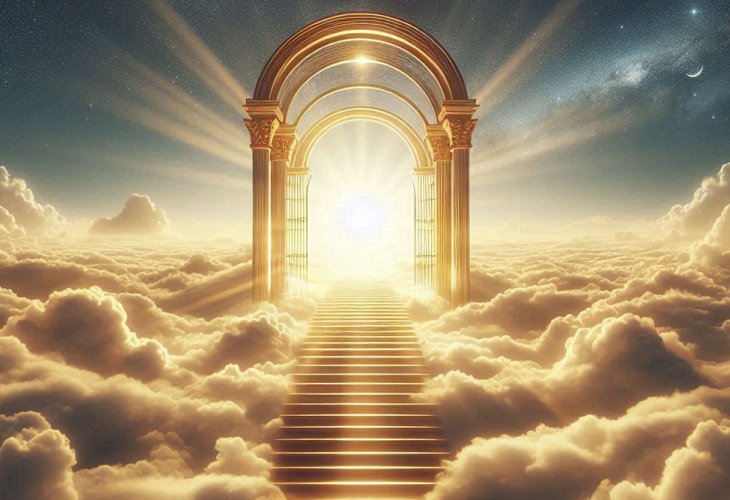In Search of God
The Human Desire for Eternity: Why We Can’t Find Lasting Fulfillment in This World
Beneath every ambition lies a divine imprint — the soul’s longing for eternity and the ultimate fulfillment found in spiritual life beyond this world

Let’s imagine a writer composing a masterpiece, an artist painting an extraordinary work of art, or an architect designing a one-of-a-kind building.
If we were to ask them, “Why do you dedicate so many years of your life to such a difficult task?” — they may answer that they find joy in creation, in expressing their inner potential, or in breaking personal limits. Is that the whole truth?
Imagine that they knew, with absolute certainty, that they would die exactly one week after completing their greatest work. Would they still invest the same effort and take the same pleasure in their creation? Probably yes, and perhaps they would even work harder.
Suppose they also knew that one week after their death, a massive meteor would strike Earth and destroy all life. Humanity would vanish, and with it, their great creation — no one would ever see it. Would they still put forth the same energy and passion?
Most people would admit that their motivation and joy would fade. They would likely feel despair and lose interest. Why is this?
If their creative drive were only for their own satisfaction — the thrill of creation — then this knowledge shouldn’t make any difference. After all, they would die before the meteor’s impact and never experience the loss.
The reason lies in humanity’s deep yearning for eternity. A creator invests effort in something that will outlive them — a belief that their work will continue to exist beyond death, helping them “escape” mortality. The hope of continuity beyond the physical world gives them meaning and spiritual satisfaction in the present. Without that imagined promise of permanence, their sense of purpose collapses.
For materialistic people, this spiritual longing for eternity often expresses itself as a desperate attempt to immortalize themselves through monuments, businesses, books, art, or family legacies that will keep their memory alive.
Most people are not artists, and their yearning for eternity appears through their children — the next generation that carries their life forward, even though they too will eventually age and die. Others try to fill the void by chasing experiences and pleasures before death overtakes them. All these pursuits are substitutes for something deeper that the Creator implanted within us: the longing for eternal life.
God intentionally made us feel unsatisfied with a short, temporary life. Deep within every soul, He planted a powerful desire for the infinite. Instead of clinging to fleeting imitations, we must reconnect to our true purpose.
Only through the Torah can a person reach genuine spiritual completion and attain the eternal happiness that God prepared for us in the World to Come. This yearning for eternity is not a learned idea, but is engraved within the very core of our soul.

